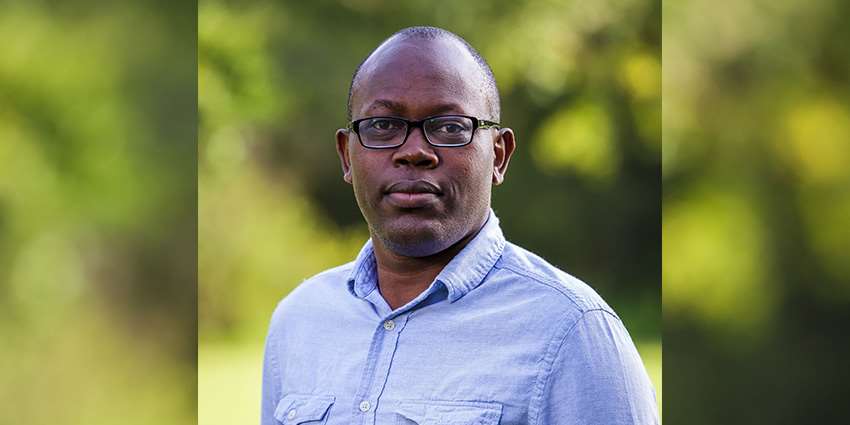A research specialist at Texas Water Resources Institute (TWRI), Duncan Kikoyo, Ph.D., dedicates his professional life to promoting equitable stakeholder participation in water resources management and planning.
“Ideally, relationships are supposed to be mutually symbiotic. Everyone benefits from the relationship, but our relationship with nature, especially watersheds, has generally been parasitic,” says Kikoyo.
Growing up in Uganda, Kikoyo found himself in a social system that chose his career path for him.
“Growing up, I wanted to be a mathematics professor ... but I lived and grew up in a system where I couldn’t determine my destiny,” he said.
Performing well in physics and mathematics in primary and secondary school, he was pushed to pursue a career in engineering.
Kikoyo received a Bachelor of Science degree in agricultural engineering from Uganda’s Makerere University in 2005. For the next six years, he worked as an engineering manager at a tea processing factory.
“From supervising tea planting and growing activities, to enjoying tea testing activities in the sampling rooms, to designing and supervising construction of factory structures and installation and maintenance of machinery, I did them all,” he said.
However, in 2011, Kikoyo found a new calling — water resources.
Starting a consulting company shortly after, he was contracted to perform hydrological analyses for water supply projects in multiple towns.
“I wanted to improve my skills in hydrology and hydraulic engineering, so I looked for study opportunities in water resources,” he explained.
In 2012, Kikoyo began a Master of Science program in integrated water resources management at the University of Dar es Salaam in Tanzania. Because the program was jointly offered by the University of Dar es Salaam and the University of Botswana, he had the opportunity to live and learn in both Tanzania and Botswana during his time in the program.
Kikoyo worked for the Ugandan government in the Directorate of Water Resources Management after completing his master’s degree. There, he oversaw the environmental impact assessment unit and managed the planning of multiple watershed projects.
“I was intrigued by how people were so willing to participate in these projects, especially the women, countering our narrative,” he said. “When we improved local participation — grassroot participation — not only did we get new ideas, but we saw the catchment planning and management process pick up steam, at levels we never anticipated. Locals were willing to learn and participate in these projects.”
Based on his experience with grassroots stakeholder engagement, Kikoyo developed an interest in developing and deploying tools to address barriers that exclude those not usually part of the water management conversation.
Wanting to pursue additional studies, Kikoyo began attending Texas A&M University in 2017. His doctoral research focused on quantifying the benefits of investing in watershed protection.
“I am convinced that if we can express these benefits, especially in monetary values, large private investors and local stakeholders would be involved more in investing and managing watershed projects,” he said.
After receiving his doctorate in biological and agricultural engineering from Texas A&M in 2020, Kikoyo had short stints at the Texas Commission on Environmental Quality and the U.S. Forest Service. In 2021, he began his current job at TWRI as a research specialist.
“TWRI provides the best forum for me to develop and deploy stakeholder engagement tools,” he said.
Kikoyo currently manages a watershed protection project in the Ayish Bayou in San Augustine County, Texas. He collects, analyzes and interprets data for the development of watershed protection plans, total maximum daily loads and implementation plans.
Looking to the future of watershed protection planning, Kikoyo is hopeful.
“The whole concept aims at equitable participation — attempting to solve all problems in the watershed, instead of providing piecemeal solutions for one or two problems,” he said. “We may not yet be there, but the foundation has been set.”


